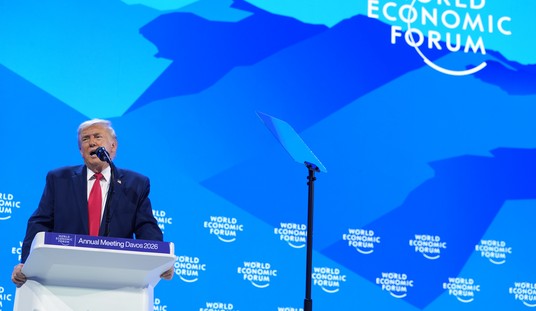When we learned that a doctor in China had been editing the genes of human babies using CRISPR technology, you must have known it wasn’t going to end well. (Particularly for him, since the doctor went “missing” shortly thereafter.) The announcement sparked a new round of debate about messing with the human genome, the advent of “designer babies” and the tantalizing possibility of wiping out inherited diseases.
But where do most Americans stand on the subject? We’re still at the relative dawn of this science, at least when it comes to tinkering with human DNA. This technology is fraught with both medical and ethical questions galore. That’s why it came as something of a surprise to me to learn that a recent poll found most Americans are okay with the idea… at least to a point. (Associated Press)
Most Americans say it would be OK to use gene-editing technology to create babies protected against a variety of diseases — but a new poll finds they’d draw the line at changing DNA so children are born smarter, faster or taller.
A month after startling claims of the births of the world’s first gene-edited babies in China, the poll by The Associated Press-NORC Center for Public Affairs Research finds people are torn between the medical promise of a technology powerful enough to alter human heredity and concerns over whether it will be used ethically.
Jaron Keener, a 31-year-old exhibit designer at Pittsburgh’s Carnegie Museum of Natural History, said he’s opposed to “rich people being able to create designer babies.”
While I’m not a doctor of any sort, I find this subject fascinating and try to stay abreast of new developments in the field. With even my limited knowledge of genetics, the questions being addressed in this poll and the general attitude of Americans toward these procedures raise a pair of highly troubling questions.
First of all, despite amazing progress in this science, there are still too many things we don’t know about our own genetic code. Scientists are constantly running into new and unexpected discoveries about all of that supposed “junk DNA” in our cells. It’s not a static system. Genes turn on and then back off at various points in our lives, and even if we have a complete “map” of a person’s genetic structure, that doesn’t mean that we know everything that each gene is responsible for or may be responsible for later in life. We’re figuratively playing with fire here.
Even if we can somehow master all of that knowledge, the apparent desire of the public to allow “just some” genetic editing to end diseases but not to create an army of super-babies is simply unrealistic. Once the genetic genie is out of the bottle, it’s not going back in. There will be a demand for “perfect” children among those who can afford it and the history of the global marketplace shows us that the demand will eventually be met. Heck, there wasn’t supposed to be any gene editing on human babies taking place but it didn’t stop that guy in China. What makes you think we can keep that science locked down?
And even beyond all that, aren’t we already tinkering around enough with the fundamental building blocks of life? It’s bad enough that we’ve got somebody growing a steak in a test tube. (No thank you. Hard pass.) If we’re going to be heading down this road, it needs to be done very slowly and carefully. Edit the genes of some rats for a while and make sure they don’t turn into a species-ending monstrosity a few dozen generations down the line. Then maybe we can talk about experimenting on ourselves.








Join the conversation as a VIP Member